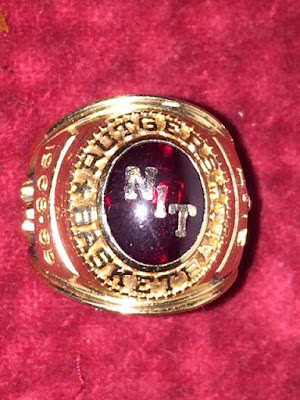
Courtesy of Jack Penhall
After becoming the first Rutgers men's basketball team to win 20 games in the regular season while winning a school record 16 straight games in the process, there is no question, losing in the first round of the 1969 NIT was a disappointment. But that should not in any way detract from the 1969 team's accomplishments. Most significant of all is a .840 winning percentage, the third highest in school history dating back to 1907. Only the 1976 Final Four team at .939 and the 1936-37 team at .867 have done better. Not only was the 1969 team dominant at home at 11-1, but they were equally impressive on the road at 7-1. Interestingly two of the team's four losses came at neutral sites. While the schedule at the time was transitioning from that of a relatively small, quasi-private institution to becoming a major state university, the team did not lack for quality wins. All told, during the regular season, the 1969 team played four teams that went on to play in the post-season - Princeton, Colorado State, Army, and Fordham and defeated three of the four, losing to CSU on a desperation buzzer-beating shot. Individual records were also set along the way with Bob Greacen setting the record for baskets in a game (19 - later tied by Eric Riggins) and the all-time record for points in a game a the College Avenue Gym (46 - the third highest all time)
Daily Home News - March 23, 1969
By any statistical standard, the 1969 team was one of the best in Rutgers history, but there is more to successful teams that statistics. At Coach Bill Foster's memorial service a few years ago, I shared something I had witnessed after a game at the Naval Academy in 1966. It was late in the season and we had just won a close, intense game, not an easy thing to do in those days at Annapolis. After the game, I was in a small hallway with Coach Foster and some players, waiting for someone to open our locker room. A naval officer came in and said to Coach Foster, "Congratulations Coach, not just on winning the game, but the way you, your players and managers conducted yourselves - you are a credit to your school." It felt like quite a compliment then and the feeling hasn't diminished, over 50 years later. Perhaps in the final analysis that's how a team should be evaluated. Without question, the 1969 team met that standard then and has continued to do so ever since.

Courtesy of Jack Penhall
Newark Evening News

















































